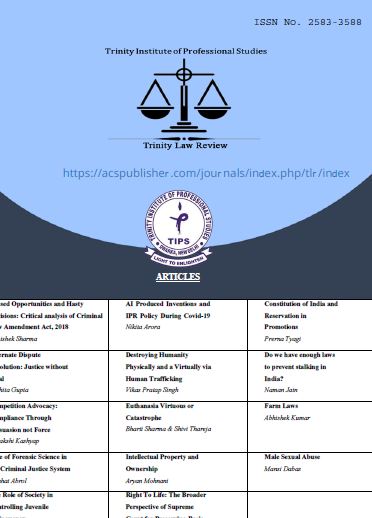Same-Sex Marriage in India: A Journey towards Equality and Inclusion in the Global Context
DOI:
https://doi.org/10.48165/tlr.2025.5.1.4Keywords:
right, act, legislation, contentions, personsAbstract
The constitution bench of the Hon’ble Supreme Court of India (hereinafter referred to as the “Supreme Court”) headed by then Hon’ble Chief Justice D.Y. Chandrachud has decided the question of same-sex marriage in India, since it was a matter of seminal importance.1 It was contended by the petitioners that the right to marry is a fundamental right enshrined under the Constitution of India (hereinafter referred to as the “Constitution”) and denying the people of same sex the right to marry is a violation of their fundamental rights. The constitutional bench unanimously held that Supreme Court could not recognize LGBTQIA+ persons right to marry, as there is no fundamental right to marry, which can be extended to the LGBTQIA+ community as per the provisions contained in Special Marriage Act or other legislations. This article will discuss the contentions of petitioners and government in the case and whether the Supreme Court was an appropriate body for such major changes in the laws relating to marriage, also the global trends and the status of same-sex marriage in some nations




